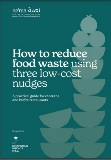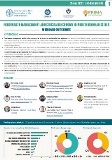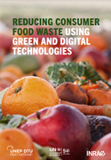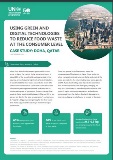Latest publications

How to reduce food waste using three low-cost nudges – A practical guide for canteens and buffet restaurants
2023
In 2022, Ne’ma, the UAE’s National Food Waste and Loss Initiative, tested three nudges to reduce food waste in hotel restaurants finding they reduced food waste by up to 44% without affecting customer satisfaction. This step-by-step guide helps scale the impact of these nudges explaining how to assess baseline levels of food waste, implement the nudges and run a basic pre-post-trial.

Food waste management and circular economy in Mediterranean cities
2022
Stakeholders from across the Mediterranean shared practical experiences in circular economy practices for food waste management at urban/local level. They reflected on success factors and challenges, discussing ways to facilitate partnerships and replicate solutions across the Mediterranean.

Reducing consumer food waste using green and digital technologies
2022
This report provides an overview of the causes of consumer food waste and the opportunities for reducing it through different means: behavioural change, technological solutions, and public and private initiatives to mitigate the problem. It includes a case study from Doha, Qatar.

Case Study Doha (Qatar): Using Technologies to Reduce Food Waste
2021
Green and digital technologies offer innovation solutions to the problem of food waste. This brief explains Doha’s experience linking policy, infrastructure, information, and consumer behavior to tackle the issue.



